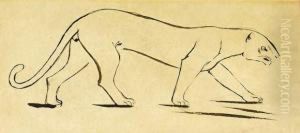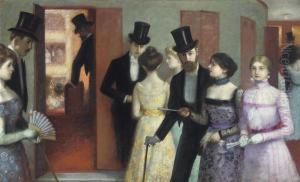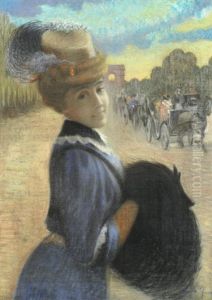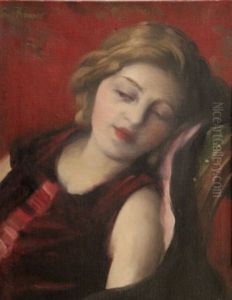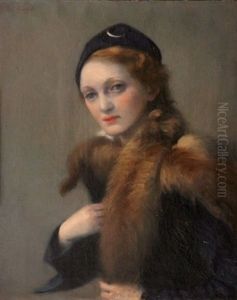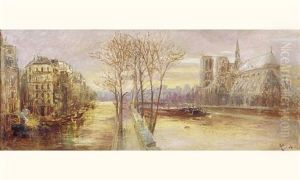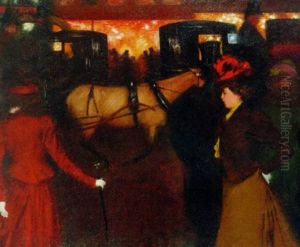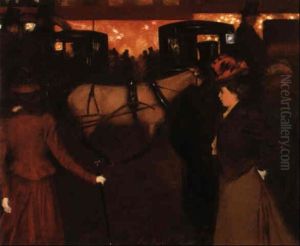Ernest Rouart Paintings
Ernest Rouart was a distinguished French painter and art collector, born in 1874 into a family that was deeply entrenched in the arts and culture of France. His father, Henri Rouart, was an engineer, painter, and a close friend of Edgar Degas, while his mother was related to the famous Impressionist Berthe Morisot. This environment undoubtedly influenced Ernest's early exposure to and passion for art, embedding him deeply within the circles of Impressionist and Post-Impressionist artists who would shape the future of French art.
Ernest was not only a painter but also an astute collector, like his father. His collection and his own works reflect a deep commitment to the traditions and innovations of French painting. He was particularly known for his landscapes and portraits, which carried on the Impressionist legacy with a personal touch that was both sensitive and evocative. Rouart's style was characterized by a delicate use of light and color, a trait that aligned him with the Impressionist movement's fascination with capturing the transient effects of light on the canvas.
Throughout his career, Ernest Rouart was involved in various artistic circles and participated in numerous exhibitions, showcasing his work alongside other prominent artists of his time. Despite living in the shadow of more illustrious contemporaries and family connections, Rouart carved out a niche for himself with his unique artistic voice and dedication to the principles of Impressionism.
After his death in 1942, Ernest Rouart's legacy continued through his works and the significant collection he amassed during his lifetime. His contributions to French art, though perhaps not as widely recognized as those of his contemporaries, remain an important part of the narrative of French Impressionism and its aftermath. The Rouart family, with Ernest as a key figure, remains a fascinating study of the interconnections between artists and collectors in the vibrant world of French art during the late 19th and early 20th centuries.
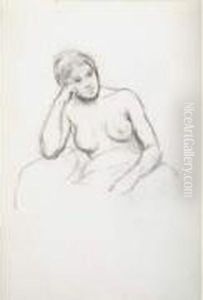
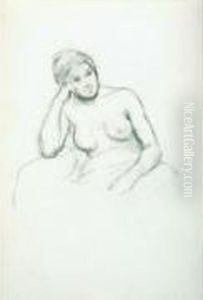
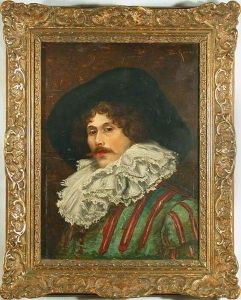
![[la Couture ; Femme Au Manchon ; Nu Assis De Dos ; Promenade Au Bois]. Vers 1920- 1930](https://www.niceartgallery.com/imgs/950972/s/ernest-rouart-la-couture-femme-au-manchon-nu-assis-de-dos-promenade-au-bois-vers-1920-1930-5f5ad713.jpg)
![[petite Fille De Face ; Petite Fille De Trois-quarts ; Au Bord De L'eau ; Promenade Au Bois]](https://www.niceartgallery.com/imgs/950971/s/ernest-rouart-petite-fille-de-face-petite-fille-de-troisquarts-au-bord-de-leau-promenade-au-bois-fc0c51ba.jpg)
